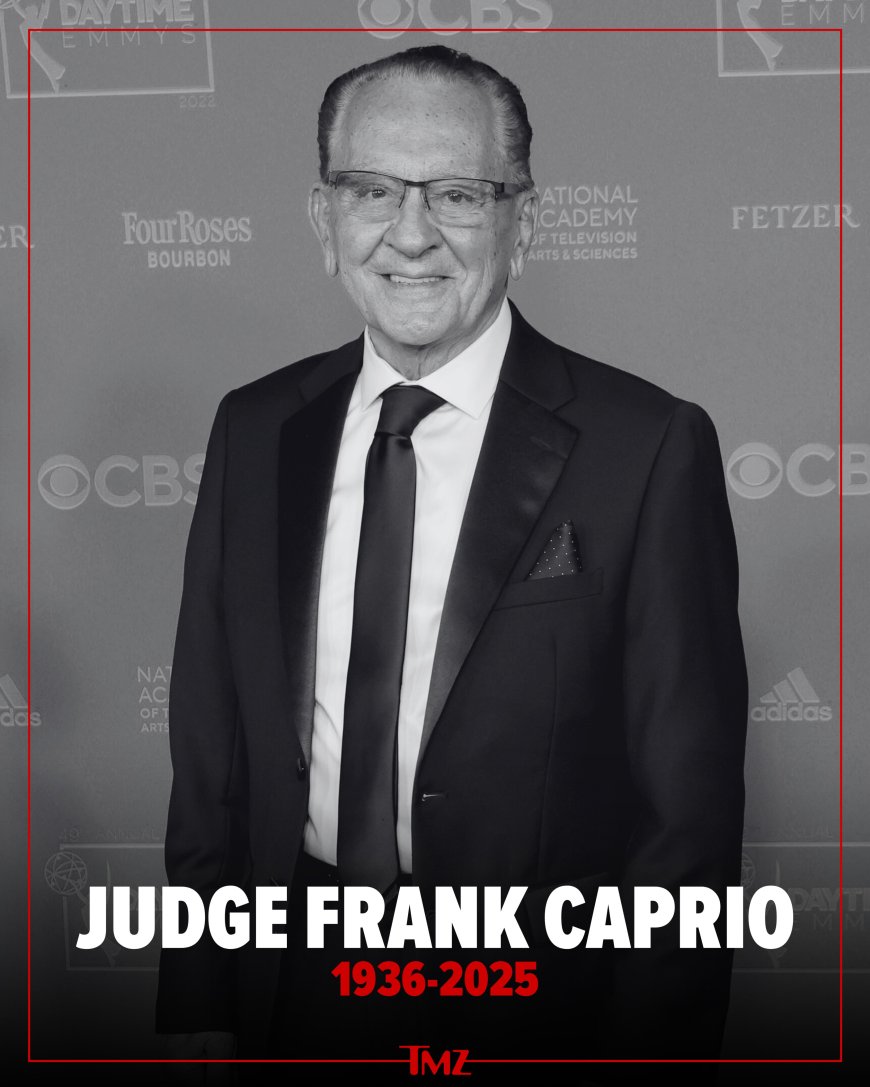Judge Frank Caprio, Champion of Kind Justice, Dies at 88
Judge Frank Caprio, the “Kindest Judge in America,” passes away at 88, leaving a legacy of compassion, fairness, and humanity in justice.

Introduction
The legal world and millions of admirers around the globe mourn the passing of Judge Frank Caprio, who died at the age of 88. Known as the “Kindest Judge in America,” Caprio became a symbol of compassion, empathy, and fairness within the justice system. His unique approach to courtroom proceedings, where he mixed legal authority with a deep sense of humanity, set him apart from traditional judges and earned him international recognition.
History and Early Life
Frank Caprio was born on November 23, 1936, in Providence, Rhode Island, to Italian immigrant parents. Coming from a humble background, he understood the struggles of working-class families. This shaped his outlook on life and law. After studying law and entering public service, Caprio eventually became Chief Judge of the Providence Municipal Court, where he served for decades. His courtroom sessions were often televised in the popular show Caught in Providence, which brought his style of “kind justice” into the homes of millions worldwide.
How He Became a Champion of Kind Justice
Judge Caprio rose to fame not because of harsh rulings, but because of his ability to see the human story behind every case. Whether it was a traffic violation or a small municipal fine, Caprio would often take time to listen to defendants’ circumstances. He balanced the letter of the law with compassion, sometimes forgiving fines or reducing penalties when he saw genuine hardship. This approach earned him immense respect and the title of “Champion of Kind Justice.”
Circumstances of His Passing
Frank Caprio passed away at 88, reportedly after battling cancer in his later years. In December 2023, he publicly revealed his diagnosis of pancreatic cancer, which he described as one of the toughest challenges of his life. Despite his illness, he remained optimistic and continued to inspire others with his resilience and positive spirit until his final days. His passing marks the end of an era in American jurisprudence, but his legacy will endure.
Key Factors and Significance
The significance of Judge Caprio’s work lies in how he redefined the role of a judge in modern society. His ability to blend justice with kindness showed that courts do not always have to be intimidating or punitive. Instead, they can serve as places of understanding and reform. His televised sessions became a global phenomenon, watched by millions on platforms like YouTube, where his decisions often went viral for their warmth and humanity.
Advantages and Disadvantages of His Style
Advantages
-
Restored public faith in the justice system.
-
Humanized law enforcement and court proceedings.
-
Provided relief to struggling individuals, showing justice can be compassionate.
-
Inspired future judges and lawyers to adopt a more empathetic approach.
Disadvantages
-
Critics argued that too much leniency might encourage repeated offenses.
-
Some traditionalists felt his courtroom style blurred the line between strict law enforcement and emotional consideration.
-
His approach, though inspiring, may not be practical in higher courts dealing with serious crimes.
Positives and Negatives
On the positive side, Judge Caprio left behind a legacy that resonates with people who believe that kindness can coexist with justice. He gave people hope that the system could be fair and merciful. On the negative side, his style could be misinterpreted as soft justice by those who value strict adherence to the law above all else.
Final Thoughts and Conclusion
Judge Frank Caprio’s life was a testament to the power of empathy in positions of authority. His passing is not just the loss of a beloved public figure, but the departure of a man who dared to show the world that compassion has a place in justice. While critics may debate the practicalities of his rulings, there is no denying the profound influence he had on millions of lives and the legal community as a whole. His courtroom may have closed, but his legacy of kind justice will live on in history as a beacon of humanity in law.

 Ellofacts
Ellofacts 





